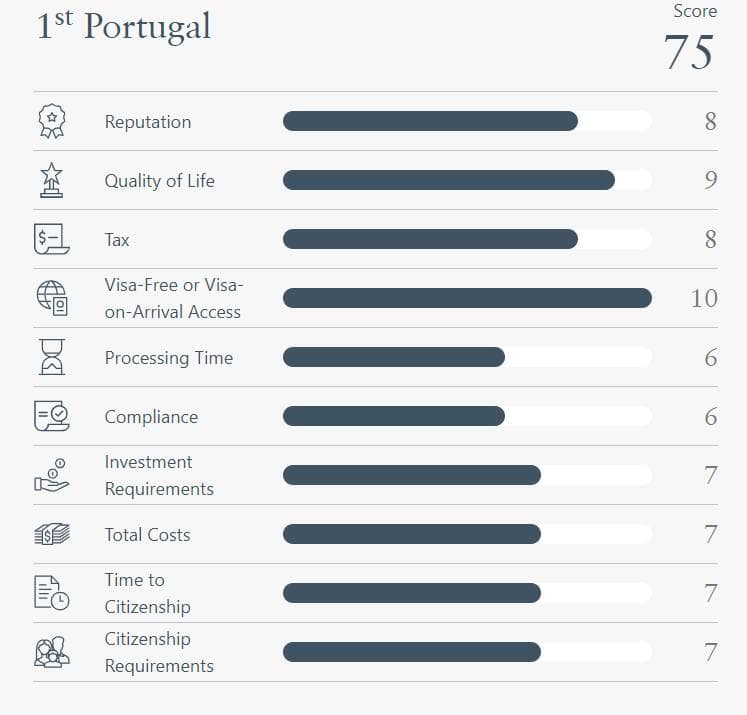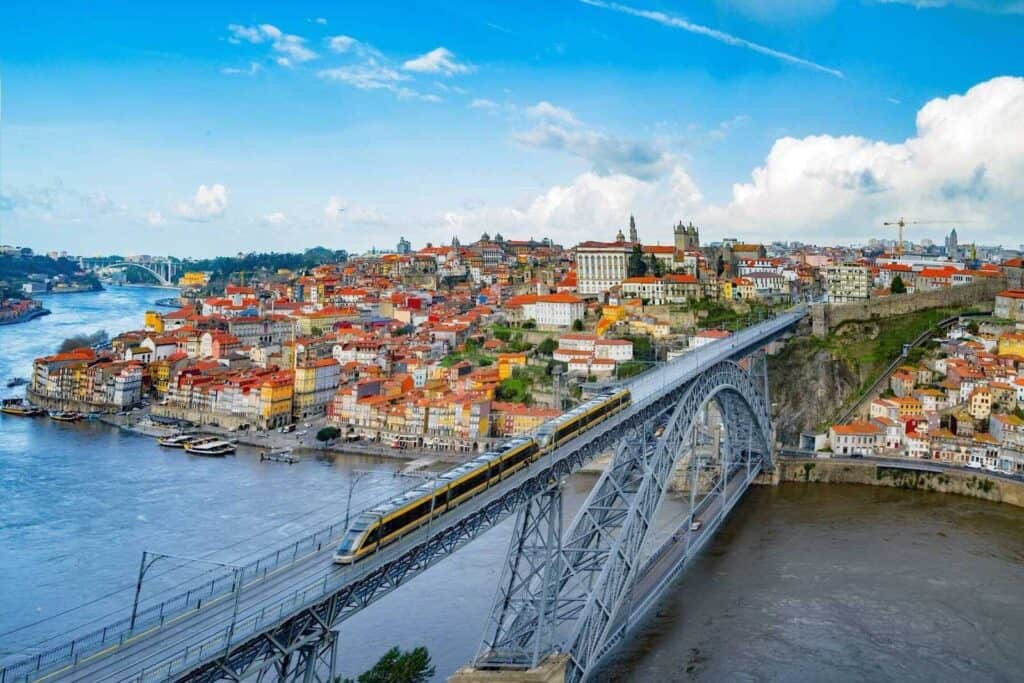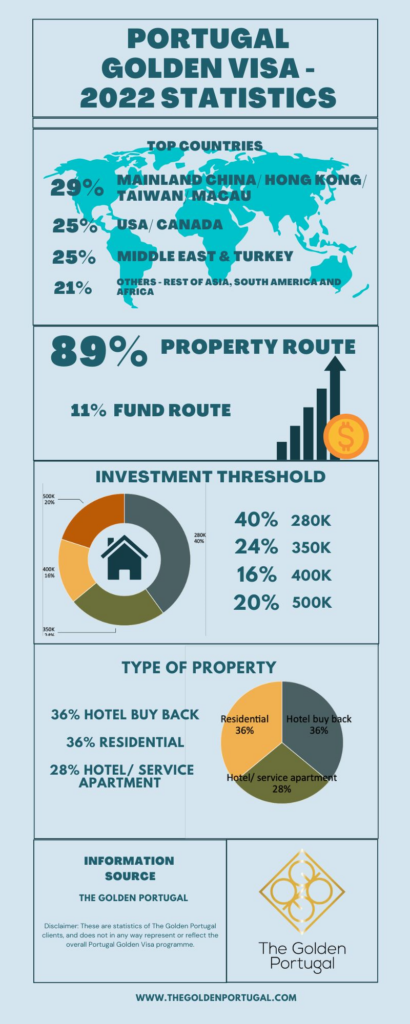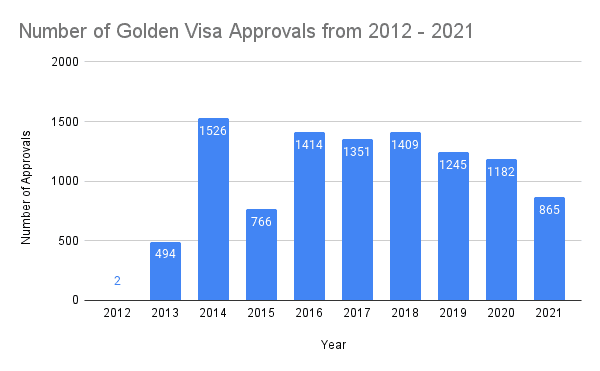Portugal Golden Visa – A Complete Guide
New Citizenship Law
Great news on Portugal Golden Visa.
The new law has been published. For Golden Visa applicants, the 5 years clock for applying citizenship will start ticking from the moment you submit your online application.
Qualified Investments for Portugal Golden Visa in 2024
Termination of Real Estate Route
Note that real estate and 1.5 million capital transfer are no longer investment options for Portugal Golden Visa starting from October 7, 2023.
Portugal Golden Visa Application Procedures
After you have decided that Portugal’s Golden Visa is your ideal choice, you might want to get more information on the investment options, and to start preparing for the application. Below is an outline of the procedures for applying for the Golden Visa, step-by-step, to give you an idea of the process. We understand there are major decisions to be made here, and dealing in Portuguese may make things more complicated, trust us that The Golden Portugal team is here to help you along the way.

Average Time For Online Application Submission (Step 1 – 6) :
3
Months
Steps to configure the How-to Schema:
Begin with an initial consultation to assess your unique case and explore the investment options that align with your goals.
We will assist in obtaining a taxpayer ID number (NIF) for you and your family, and introduce you to a bank manager to facilitate account opening.
Based on your needs, we’ll identify and recommend suitable investment opportunities.
Transfer the necessary funds to your Portuguese bank account and proceed with your chosen investment. Specific procedures may vary depending on your investment option.
Gather all required documents for the SEF submission. We’ll provide guidance and collaborate with relevant parties, such as the bank manager and fund manager, to acquire the necessary documents.
Your lawyer will submit your application and accompanying documents online. Be prepared to pay the visa processing fee during this step.
After receiving initial approval, we’ll receive a notification to schedule an appointment for you to provide biometric information, including fingerprints and a photo. You’ll need to submit the original application documents during this appointment.
Once your application is approved, you’ll be required to pay the Golden Visa issuance fee to the government. We will collect your residence cards on your behalf and arrange for them to be sent to you. Your five-year Golden Visa residency period commences from the date indicated on your initial card.
Apply Remotely
Please note that all steps and processes, except for step 7 (Biometrics), can be conveniently completed remotely without the need for you to visit Portugal. Our dedicated team is here to ensure a smooth and hassle-free Golden Visa application experience. Feel free to contact us for an initial consultation to get started on your Golden Visa journey.
Documents Requirements for Portugal Golden Visa
Documents to be obtained in your country of origin
Documents to be obtained in Portugal (we will prepare for you)
FAQ on Portugal Golden Visa
2024 Global Golden Visa Report – Portugal as the Number One Program
In a recent report released by Henley Partner, Portugal’s Golden Visa was…
2024 Hong Kong Immigration Exhibition & Guest at The Golden Quarter Show
Asia Tour – 2024 Hong Kong Immigration Exhibition Let’s take a moment…
Becoming a Portuguese Citizen Has Just Gotten Quicker!
Great news on Portugal Golden Visa. The president has signed the new…
2023 World Travel Awards: Which European Country Is The Most Loved By Travellers?
Hey wanderlust enthusiasts! The 2023 World Travel Awards were nothing short of…
Best Cities Of Portugal To Live In 2024
Portugal has become a very attractive place for people looking to relocate…
How to Invest in Portugal Golden Visa Funds
A Paradigm Shift in Portugal Golden Visa Investments – The Portugal Golden…
Portuguese Citizenship Law – Amendments 2024
Great news for our Golden Visa clients! On January 5th, the Portuguese…
Second Passport: 9 Things to Consider Before Getting One
It is the best of times, it is the worst of times….
The End of an Era with Real Estate Investment, The Beginning of the Next Phase!
The “More Housing” bill was officially published on October 7, 2023, marking…
Breaking News – Portuguese President Veto The Latest ‘More Housing’ Bill
After a 6 months legislative process on habitation measures, Portuguese President of…
Final Vote on Portugal Golden Visa
On July 19th, the Portuguese Parliament voted on the final wording of…
A Look into 2022 Portugal Golden Visa Total Approvals
Please note that this statistic is the final approval of Golden Visa…
Portugal Golden Visa Approval 2022!
Clients have been asking when will they get their pre-approval, and biometric…
A Tale of Twin Citizenships
If there is one lesson that we learnt from the Russia and…














